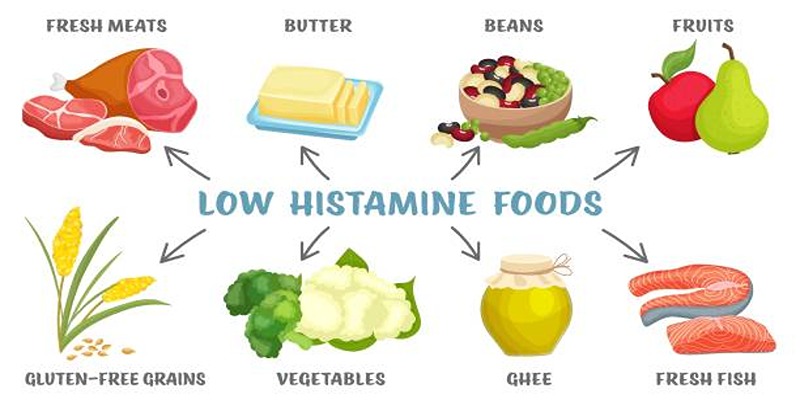Hypertension, or high blood pressure, can be considered one of the most widespread issues affecting people all over the world.
Commonly termed the silent killer because it produces no signs and symptoms, hypertension predisposes the individual to heart disease, stroke, and other forms of deadly ailments if neglected.
However, people often do not realize that not all hypertension is the same. This is why it is crucial to know the various types of hypertension to diagnose and address them correctly.
This article describes different types of hypertension alongside the management approaches to give the reader a clear distinction between them.
5 Basic Types of Hypertension Everybody Should Know
1. Primary (Essential) Hypertension

Overview
This kind of hypertension is determined when a doctor examines the patient and finds out that their blood pressure is high in three or more appointments, and they have excluded all the other sources of hypertension. Most patients with essential hypertension are asymptomatic.
However, they may present with symptoms such as recurrent headaches, fatigue, lightheadedness, and nasal inflammation. The exact cause of essential hypertension is unknown; however, studies have shown that obesity, smoking, diet, heredity, and other factors all contribute to the condition.
Causes
While the exact cause is unknown, several factors contribute to the development of primary hypertension:
- Genetics: A family history of high blood pressure increases your risk.
- Age: Blood pressure tends to increase as you age.
Management
Primary hypertension is often managed through lifestyle changes such as:
- Reducing salt intake
- Exercising regularly
2. Secondary Hypertension

Overview
The most frequent cause of secondary hypertension is renal arterial stenosis, an ailment that influences the arteries that deliver blood to the kidneys. Other causes comprise airway obstruction during sleep, diseases or tumors in the adrenal glands, hormone imbalance, thyroid disease, or salt intake.
Fortunately, if the cause is identified and established, hypertension can usually be managed properly.
Causes
Several health conditions can cause secondary hypertension, including:
- Kidney disease: Damaged kidneys can affect fluid balance and blood pressure regulation.
- Hormonal disorders: Conditions like hyperthyroidism or Cushings syndrome can increase blood pressure.
Management
For secondary hypertension to be treated, the original cause has to be identified. This may involve:
- Symptomatic management or curing of the specific medical condition that resulted in the development of RAI (for instance, handling of kidney illnesses or sleep apnea).
- Changing some of the medication can cause high blood pressure.
3. Isolated Systolic Hypertension
Overview
Blood pressure is recorded in two numbers: The greater, or first value, is the systolic pressure, and it is the pressure during the contraction of the heart; the smaller, or the second value, is the diastolic pressure, and it is the pressure during relaxation of the heart. Hypertension is defined as a blood pressure of 120/80 and below.
For this hypertension, the systolic pressure is raised to a level higher than 140, while the second, lower number is near average and below 90. This type of hypertension is prevalent in people who are older than 65 and results from stiffness of the arteries.
Causes
- Atherosclerosis: The formation of plaques in the arteries leads to their firming up.
- Heart valve problems: Some forms of heart disease increase systolic pressure.
Management
- Blood pressure-reducing medicines like the calcium channel blockers or the diuretics.
- Persistent evaluation, particularly in elderly patients.
4. White Coat Hypertension

Overview
Some of the hypertension types include white coat hypertension and labile hypertension, which are hypertension types that occur and then disappear. They suggest that these forms increase the predisposition of these persons to hypertension, or they are just a norm.
It is indeed astonishing, but it is true to the extent that labile refers to blood pressure, which varies regularly, and this is true for almost everyone.
Causes
- The effect of white-coat hypertension is mainly psychogenic. This is because anxiety or stress during a doctors visit will cause the blood pressure level to rise.
Management
Managing white coat hypertension involves:
- Home monitoring: It is also preferred that one check his or her blood pressure from home on a frequent basis for better results.
- Stress management: One can also try to revert to some forms of relaxation, such as learning techniques to manage stress during medical checkups.
5. Resistant Hypertension
Overview
If your doctor and your blood pressure give you three different classes of antihypertensive medication that are not reduced, then you probably have resistant hypertension. Resistant hypertension may be present in 20 to 30 percent of hypertension cases, according to studies.
This type of hypertension appears to be associated with genetic factors, and some risk factors include age, obesity, female gender, African American descent, and chronic conditions like diabetes and kidney disease.
Causes
Several factors can contribute to resistant hypertension, including Several factors can contribute to resistant hypertension, including:
- Obesity: Obesity is a factor that may cause complications such as uncontrolled high blood pressure.
- Chronic kidney disease: A reduction in the filtration rate of the kidneys results in hypertension that is persistent.
Management
Treating resistant hypertension involves:
- Addressing underlying causes: Conditions such as sleep apnea, obesity, or diabetes can be managed, as well as treatment to reduce blood pressure.
- Medication adjustments: The physician may prescribe more medicines or change the patients therapy that is already in place.
Conclusion
Understanding the different types of hypertension is essential for proper diagnosis and treatment. Early detection, lifestyle changes, and medication, when necessary, can significantly reduce the risks associated with hypertension and lead to better long-term health.
If you suspect you may have high blood pressure, its important to seek medical advice and take proactive steps to manage it.







